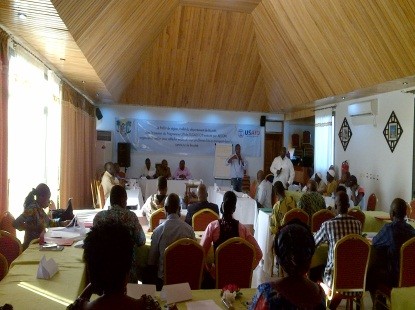
In 2012, the mayor’s office in Bouaké, Côte d'Ivoire, imposed a yearly licensing fee of $50 (25,000 CFA) on each transporter and taxi driver. Revenue from the licensing fee was intended for road repairs and other improvements to transportation infrastructure in Bouaké. However, the roads remained in a state of complete disrepair, and attempts to collect the fee triggered protests and refusals to pay among transporters and taxi drivers who saw the fee as unreasonable since they did not see the funds put to good use.
USAID, through its Office of Transition Initiatives, helped organize a forum Sept. 2-4, 2013, to bring together the public, local officials and transporters to discuss the conflict between the mayor's office and Bouaké transporters and taxi drivers.
Through the forum and a series of follow-up workshops, a local government accountability committee was created that now deals with government-citizen relationships. Using this new mechanism, transporters and local authorities were able to communicate effectively to tackle road and licensing fee issues. Transporters provided the mayor's office with information on what repairs to prioritize, and local officials provided information about their resource constraints and timelines for addressing repair issues.
Sako Oumar, president of the Bouake Communal Taxi Owners' Association, said, “These workshops have greatly improved our relationships with local authorities. We all know our roles and responsibilities and where to meet to solve issues.”
As a result of the working sessions, repairs were made to three vital city roads and transporters resumed paying the $50 fee. By the end of the sessions, each participant understood their role in the process of resolving local service delivery issues.
The forum and follow-up activities were part of USAID's ongoing efforts to increase community-government interaction and build public confidence in local governments’ ability to address constituency concerns.







Comment
Make a general inquiry or suggest an improvement.